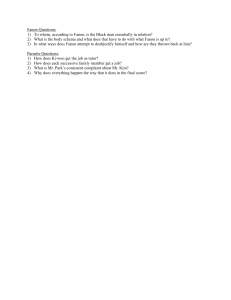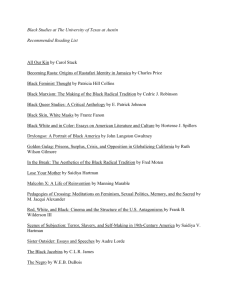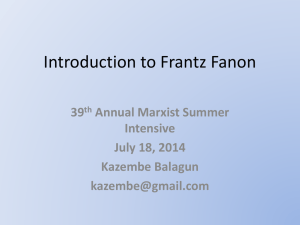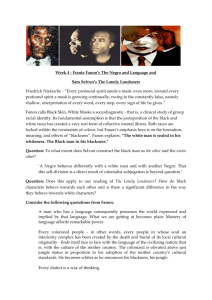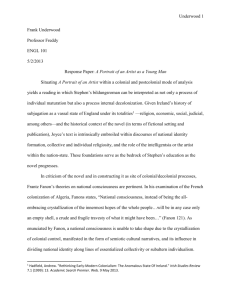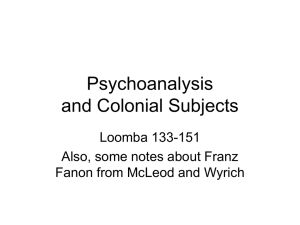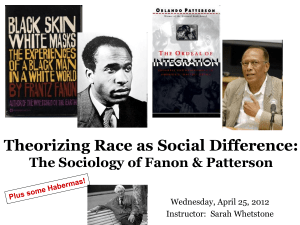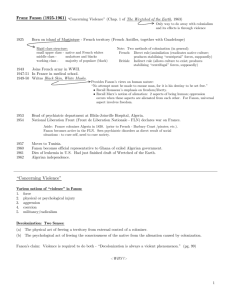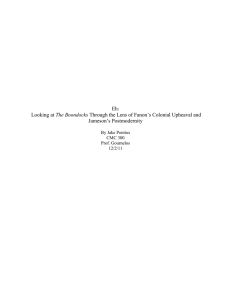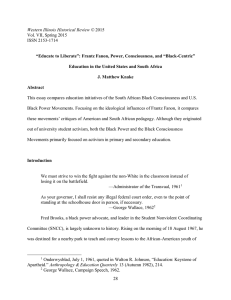Frantz Fanon,Black Skin White Masks, Ch 8
advertisement
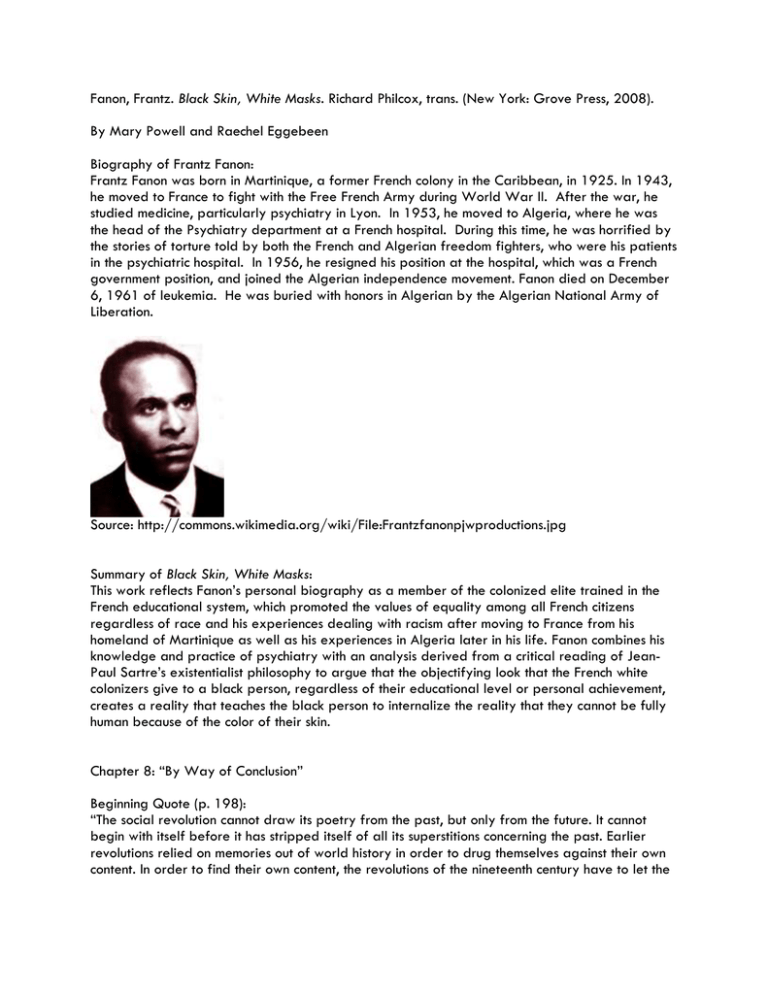
Fanon, Frantz. Black Skin, White Masks. Richard Philcox, trans. (New York: Grove Press, 2008). By Mary Powell and Raechel Eggebeen Biography of Frantz Fanon: Frantz Fanon was born in Martinique, a former French colony in the Caribbean, in 1925. In 1943, he moved to France to fight with the Free French Army during World War II. After the war, he studied medicine, particularly psychiatry in Lyon. In 1953, he moved to Algeria, where he was the head of the Psychiatry department at a French hospital. During this time, he was horrified by the stories of torture told by both the French and Algerian freedom fighters, who were his patients in the psychiatric hospital. In 1956, he resigned his position at the hospital, which was a French government position, and joined the Algerian independence movement. Fanon died on December 6, 1961 of leukemia. He was buried with honors in Algerian by the Algerian National Army of Liberation. Source: http://commons.wikimedia.org/wiki/File:Frantzfanonpjwproductions.jpg Summary of Black Skin, White Masks: This work reflects Fanon’s personal biography as a member of the colonized elite trained in the French educational system, which promoted the values of equality among all French citizens regardless of race and his experiences dealing with racism after moving to France from his homeland of Martinique as well as his experiences in Algeria later in his life. Fanon combines his knowledge and practice of psychiatry with an analysis derived from a critical reading of JeanPaul Sartre’s existentialist philosophy to argue that the objectifying look that the French white colonizers give to a black person, regardless of their educational level or personal achievement, creates a reality that teaches the black person to internalize the reality that they cannot be fully human because of the color of their skin. Chapter 8: “By Way of Conclusion” Beginning Quote (p. 198): “The social revolution cannot draw its poetry from the past, but only from the future. It cannot begin with itself before it has stripped itself of all its superstitions concerning the past. Earlier revolutions relied on memories out of world history in order to drug themselves against their own content. In order to find their own content, the revolutions of the nineteenth century have to let the dead bury the dead. Before, the expression exceeded the content; now the content exceeds the expression.” (Karl Marx, The Eighteenth Brumaire) 1. What does Karl Marx mean by letting the dead bury the dead in this quote? 2. What does Marx mean by superstitions? Can you name at least 2 examples of cultural superstitions that your culture holds? 3. Why might Fanon have chosen this quote to begin this chapter? “…intellectual alienation is a creation of bourgeois society.” (p. 1990 4. What does this term “bourgeois society” mean? 5. What is meant by “intellectual alienation?” 6. Do you agree with Fanon's assertion? Justify your answer. On page 200, Fanon makes two claims about the black man. First, he is locked in his body. Second, he is a slave to the past. 7. What does Fanon mean by his statement that “the black man is locked in his body?” 8. Can a black man escape from this bodily prison? 9. What does Fanon mean by his statement that the black man “is a slave to the past?” 10. Why does the white man need to pin the practice of cannibalism on the black man as his history? On page 202, Fanon claims “the black man wants to be like the white man. For the black man, there is but one destiny. And it is white.” 11. What does it mean to be a white man according to Fanon? What are the advantages? What are the disadvantages? 12. Why is the black man’s destiny to be white? 13. Can the black man ever fulfill his destiny? Justify your answer. On page 204, Fanon claims that he has one duty and one right that he can claim for the world. His right is to demand human behavior from others and his duty is to never let his actions take away his freedom. 14. What kinds of behaviors does Fanon have the right to demand from white man? From fellow black men? 15. What types of behaviors take away a person’s freedom? 16. Why does he claim that it is his duty to make sure his actions do not take away his freedom? 17. Fanon offers this as a way to end the racism that he and others experienced. Do you agree that this is a solution to ending racism?
